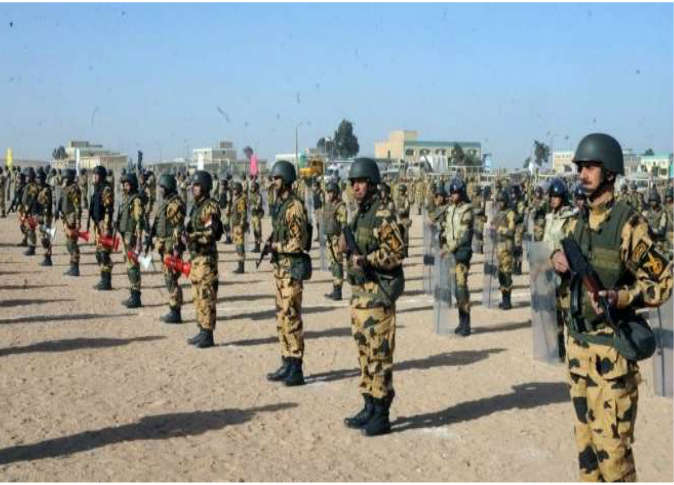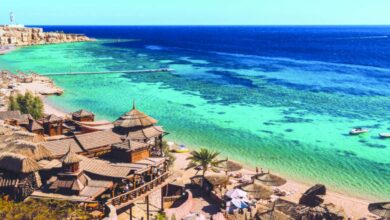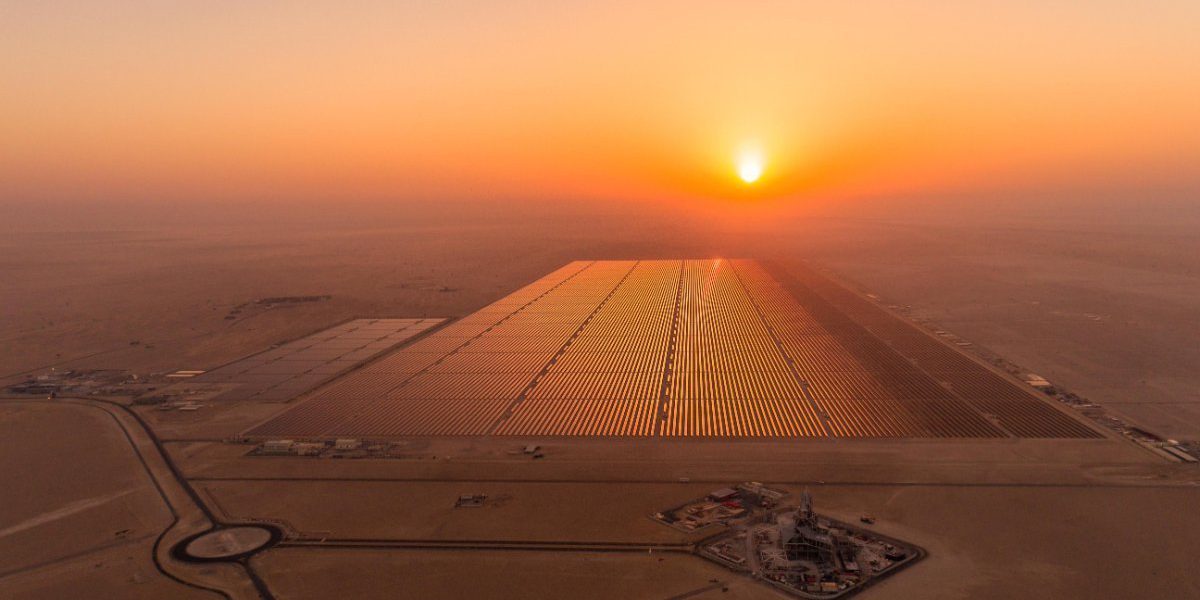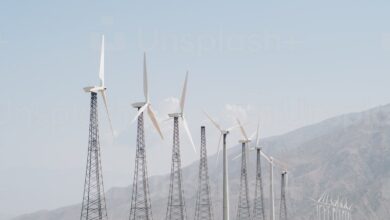Just after the New Year, Prime Minister Kamal al-Ganzouri held a ministerial meeting to discuss a new draft law that would establish an authority for the development of Sinai.
This authority would be responsible for ensuring the region’s future development in tourism, agriculture and industry.
“One of the political crimes of Mubarak's regime was to keep Sinai mostly undeveloped for the last 30 years after it was liberated from Israeli occupation, leaving its population of 500,000 alienated from the rest of country,” said Mohamed al-Masry, a member of the Sinai for New Egypt’s organizing committee.
In light of this, the Sinai for New Egypt initiative launched Monday morning with a series of conferences at Cairo University. A variety of experts gathered in the university's conference center to put forth their views regarding the region’s socioeconomic state and discuss how it could be developed to its full potential.
One of the main goals of the initiative, which includes affiliates from various ministries, is to bring all these ideas together and consolidate them into coherent arguments to present to the future authority.
“Scientists, academics and politicians have long been isolated from one another,” says Salah Arafa, another member of the event’s organizing committee and professor of physics at AUC. “This initiative will allow for interdisciplinary communication between different institutions for the first time.”
Representatives from various ministries, universities, research institutions and NGOs met with each other, discussing topics including renewable energy, agriculture and integrated farming, water management, eco-tourism, housing and territorial planning, as well as issues of art, culture and religion.
Academics and scientists say that in some instances they have tried to alert government officials of important data, like resource evaluations and geophysical research, which they claim was often consciously ignored. Affiliates of ministries rebutted that this was not true.
Over the course of the conferences, heavy emphasis was often placed on the use of alternative energies, as well as the development of integrated farming communes, to preserve as much of Sinai's natural state as possible.
Integrated farming is a method of creating self-sustaining ecosystems that can meet, or even exceed, regional needs. An example of such a system is using livestock to fertilize crops, which can be hydrated using recycled irrigation water that has been purified using alternative energy — the idea being to minimize the need for human interference and external resources.
“Integrated farms could also produce many raw products such as olives, hence freeing up more agricultural land and using Egypt’s resources and workforce more efficiently,” said Afify Afify, chief of research at the Soil, Water and Environment Research Institute (SWERI) and affiliate of the Ministry of Agriculture’s Agricultural Research Centre (ARC).
It was generally agreed that investing in alternative energy solutions would be the obvious way to prompt Sinai development, given the region’s ideal weather conditions. Many representatives also expressed interest in using Sinai development as a platform for Egypt to officially join the Desertec initiative.
Already in place in Morocco, Desertec proposes linking the European Union and Middle East and North Africa regions through the sharing of knowledge and resources. Practically, this means the MENA region would accept investment and technological expertise from the EU, which would help install solar and wind farms in consenting countries' hot and windy locations, which are essential for returns on alternative energy investments. Predetermined percentages of energy production will be exported to the EU, leading to stronger ties between the regions.
“Developing environmentally friendly industry in the Sinai will also create millions of jobs, resulting in the region’s natural development,” said Afify.
“We must stride towards creating world-renowned, eco-friendly communities,” said Salah Arafa, the physics professor who is also responsible for the New Basaisa Eco-Desert Communities in South Sinai, which are recognized internationally as models for sustainable development. “Sinai could not only eventually be self-sustainable, including cities like Sharm al-Sheikh, but also export its produce.”
Others speaking from an economic perspective explained the huge benefits of environmentally friendly solutions in increasing environmental tourism and foreign interest in Sinai. Many said that Egypt must increase tourism, but should also ensure that the type of tourists it entices are aligned with regional development causes and not destructive to them.
Hesham Besheer from the Egyptian Committee of Foreign Affairs also added that natural bi-products of environmentally friendly solutions will increase flora and fauna in the region, which already draw tourism.
“Egypt needs regional developmental solutions that are multi-faceted and can help various sectors — agriculture, tourism, foreign relations — all at once,” said Masry.
“Egypt’s current political turmoil, as well as the opportunity for developing the Sinai, provides great opportunity to become a model for neighboring countries.”
Turkey’s Directorate General for Regional Development Nahit Bingöl was also present at the conference to share his views on Turkey’s successes over the past decades.
With regards to Sinai, he said that “it is important to treat each national region as a unique asset which must be addressed based on local dynamics and internal potential. Doing this efficiently is key to developing a bottom-up, multi-faceted economy that will in turn encourage international dialogue and foreign investment.”
On Thursday, following the conferences, representatives from each institution will travel to Sinai together to discuss the conference’s main ideas with local residents. The goal is to develop trustworthy dialogue with the people of Sinai, resulting in educated bottom-up solutions that can then be presented to government authorities.




